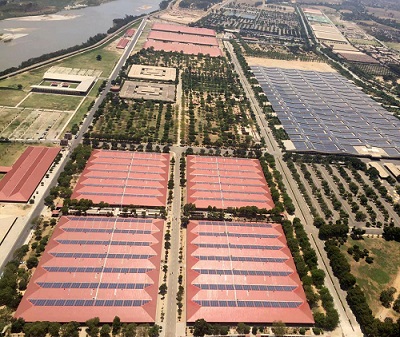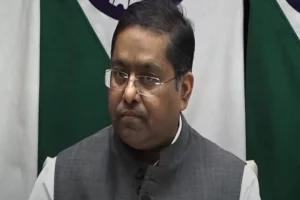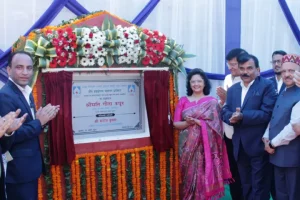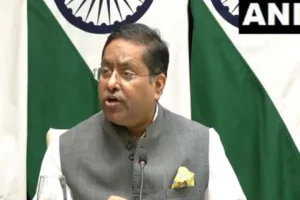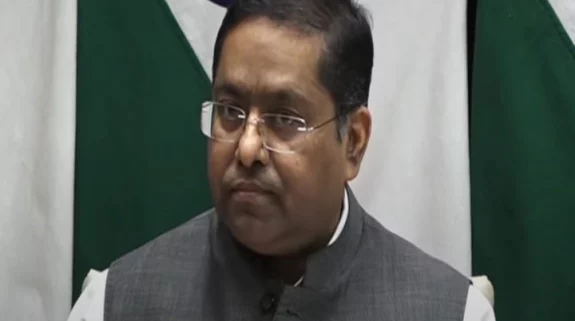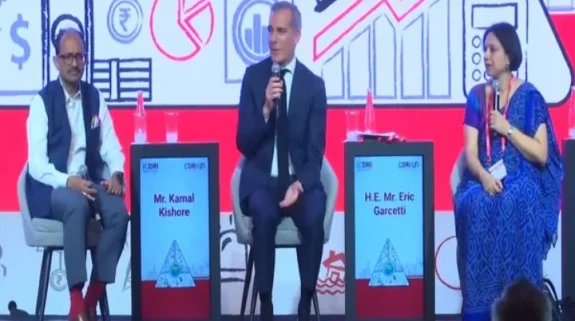The renewable energy installed capacity in India has grown by a massive 162 per cent in the last five years with country's solar installed capacity having increased by about 13 times in the last six years. The Indian government has also revised the target of grid connected solar power projects to 100,000 MW under the National Solar Mission.
Apart from domestic actions, India has also taken a lead in bringing together international coalitions and also helping other countries address this challenge, revealed External Affairs Minister S Jaishankar at the World Sustainable Development Summit held virtually with 'Rebooting Green Growth' being the main agenda.
Speaking about the four initiatives led by India, the minister said that the International Solar Alliance (ISA) has become an example of how positive global climate action can be taken forward through partnerships. ISA provides a dedicated platform for cooperation among governments, multilateral organizations, industry, and other stakeholders to help achieve a common goal. Increasing the use and quality of solar energy to meet energy needs in a safe, convenient, affordable, equitable and sustainable manner enhances energy security and sustainable development, and improves access to energy in developing member countries.
"It is among the fastest growing International Organisations today, with 89 signatories. With plans to train thousands of stake-holders, and promote research and development in renewable energy, the ISA will contribute to reducing carbon foot-print. India has already committed US$ 1.7 billion under Lines of Credit towards solar projects in various countries," said Jaishankar.
ISA has recently launched two initiatives – a ‘World Solar Bank’ and ‘One Sun One World One Grid Initiative’ – of global import that are poised to be instrumental in bringing about a solar energy revolution globally. The proposed World Solar Bank would cater to the need for dedicated financing window for solar energy projects across the members of the ISA.
The minister also spoke about the Coalition for Disaster Resilient Infrastructure (CDRI) launched by India at the 2019 Climate Summit, another important international initiative to make infrastructure disaster resilient. As many as 20 countries – including 10 from the G20 – and four international organisations have already joined the CDRI. It is working to garner attention towards infrastructure damage during natural disasters, which especially impacts the poorer nations. In 2021, CDRI, which is co-chaired by India and UK, will host its third global event, which will be an opportunity to take stock of the progress as well as give added impetus in the run up to COP 26. Government of India has allocated US$ 70 million to support the work of the CDRI.
The India-UN Development Partnership Fund is another practical manifestation of climate action and sustainable development in the spirit of South-South cooperation. The Fund established in 2017, aims to contribute to the efforts of developing countries towards the realization of the 2030 Agenda for Sustainable Development Goals including on Climate Action. The Fund is supporting efforts in countries in Pacific Islands, Africa, Caribbean countries with provision of Climate Early Warning Systems, solar home systems, solar pumps, and projects to repair damage due to climate change induced by events such as hurricanes. The Fund has already supported projects in 48 countries for various SDGs through a US$150 million multi-year pledge by the Government of India.
India along with Sweden also launched the Leadership Group on Industry Transition (LeadIT) along with the World Economic Forum with the support of Stockholm Environment Institute in 2019 to boost climate ambitions and actions to implement the Paris agreement. This initiative provides a platform for governments and the private sector to help develop low carbon pathways for industry. Currently, the Group has membership of 13 countries and 15 companies, and is committed towards low carbon industry transition.
"As we go into COP 26 this year, there are several threads that need to be addressed. Climate Ambition needs to go hand-in hand with the framework for financial, technical and capacity building support to countries who need it. It is equally important for countries to fulfil their pre-2020 commitments," he said.
With world economies that were brought to a halt by the Covid-19 pandemic now slowly picking up, India is projected to grow at over 11 per cent next fiscal.
"But what is important, for the world as much as India, is that this growth must be as Green as possible," said Jaishankar.
He listed climate change as a key global challenge and India clearly a leader in Climate Action.
"Respect for nature, the judicious use of resources, reducing our needs and living within our means have all been important aspects of both India’s traditions and its present day efforts. As Prime Minister Modi has said, respect for nature is an integral part of our culture and protection of environment comes naturally to us. We, the present generation, have the responsibility to act as a trustee of the rich natural wealth for future generations."
Among the G-20 nations, India is on track to meet its climate change mitigation commitments, having the fastest-growing solar energy programme in the world. Indian government has also expanded access to clean cooking fuel to cover over 80 million households in need, which has led to energy saving of about 47 billion kWh per year and reduction of 38 million tonnes of CO2 per year. This is among the largest clean energy drives globally.






